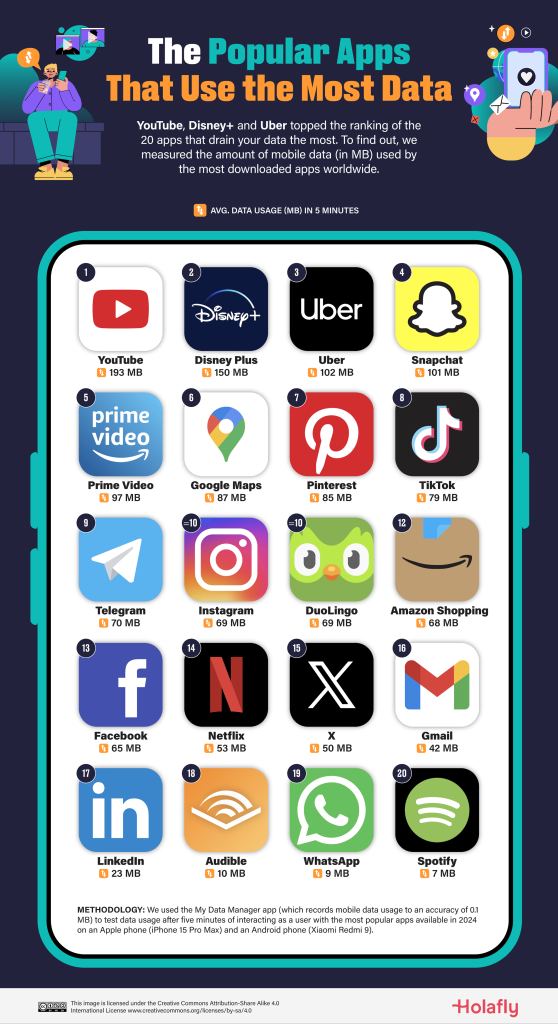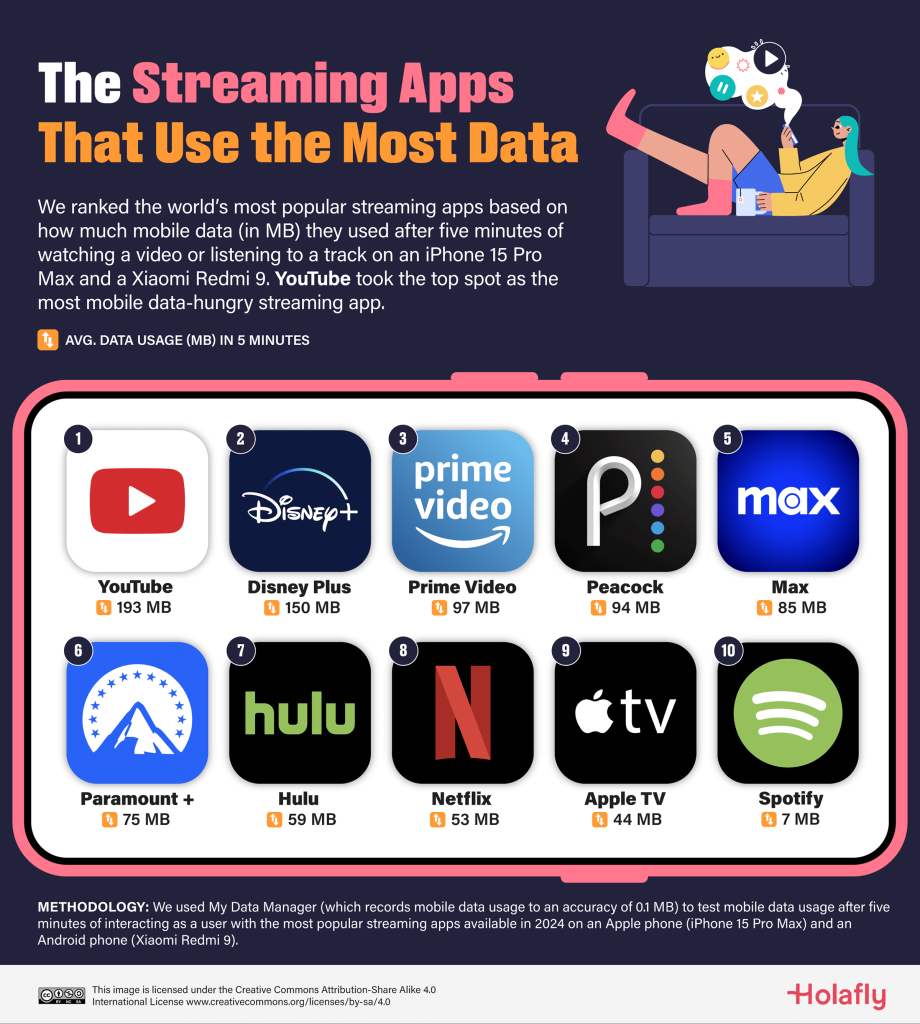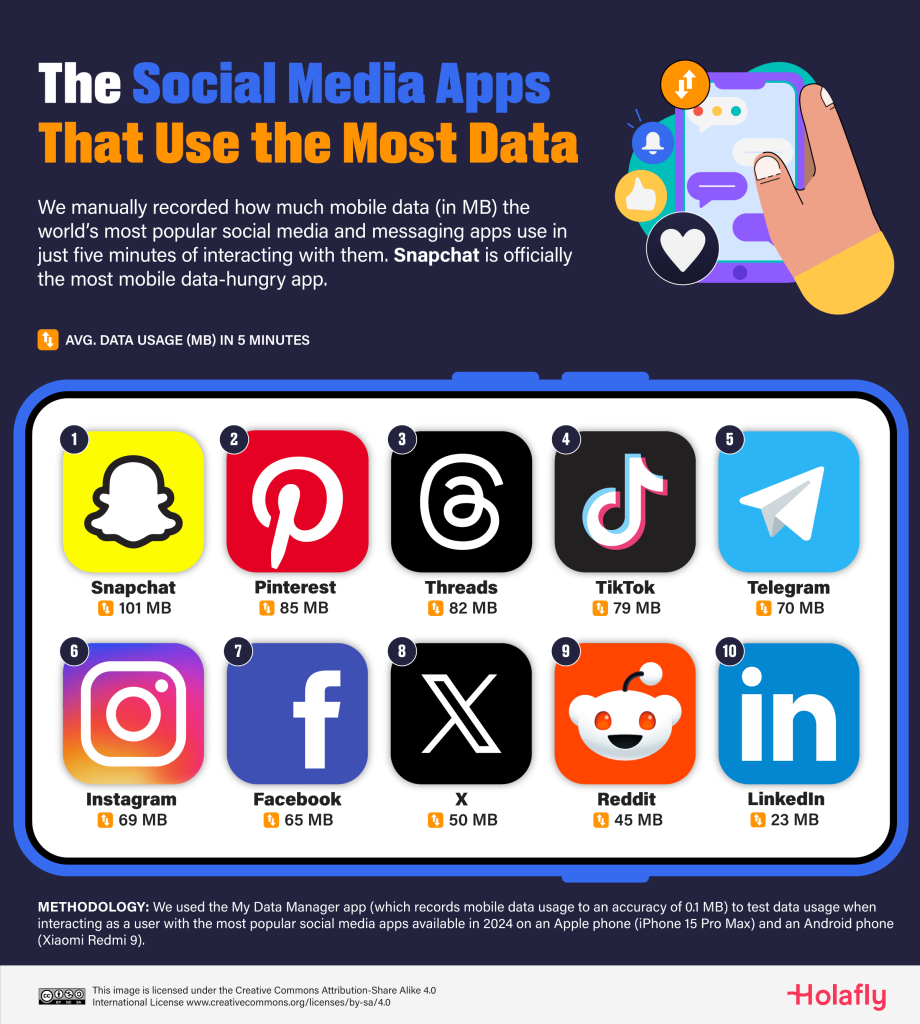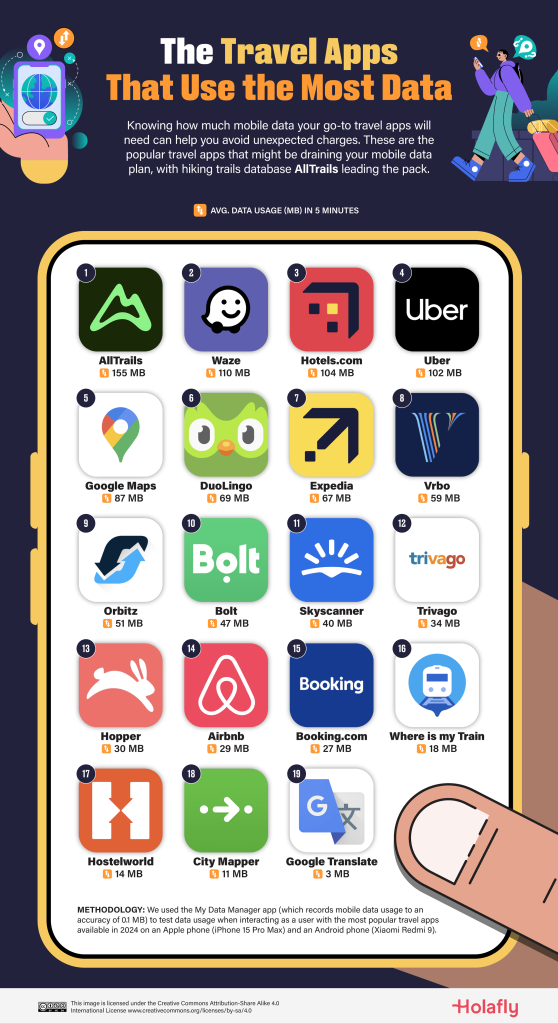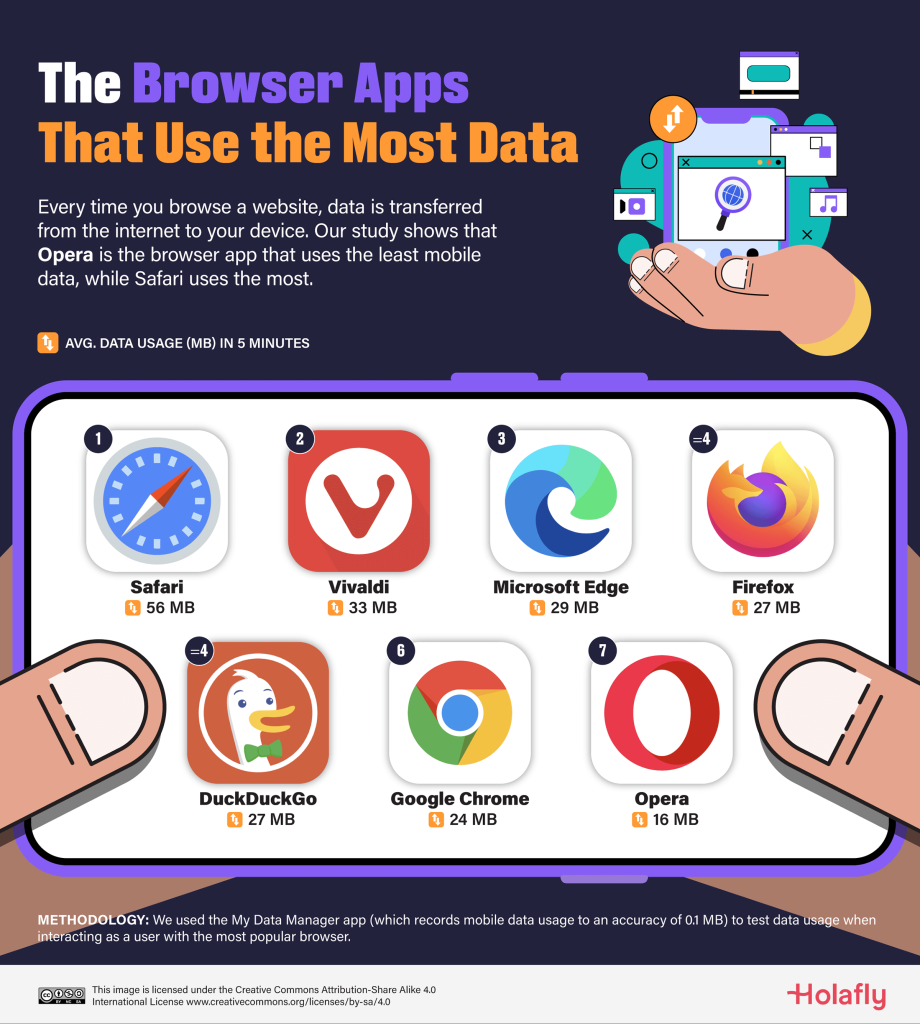Report Reveals The Apps That Consume The Most Mobile Data
It's crucial to keep an eye on your data usage.
Telco company Holafly recently compiled a list of apps that consume the most mobile data
Using the My Data Manager app, Holafly tested the data usage of popular apps we all use. The test was carried out on an iPhone 15 Pro Max and an Android Xiaomi Redmi 9.
To ensure accurate results, Holafly isolated each app by closing all other apps and disabling Wi-Fi. They then measured data consumption in MB over five minutes of usage per app.
Here are the apps that take a bite out of your megabytes
To no one's surprise, the most data-hungry apps are media streaming apps such as YouTube and Disney+, which average 193MB and 150MB of data every five minutes. Location-based services such as Uber and Google Maps, which frequently update map data and provide real-time traffic information, also rank among the highest data consumers. While Grab is not on the list, we should also excercise caution as it is categorised similarly to Uber and Google Maps.
Streaming videos can eat up a ton of data because the files are huge. YouTube videos usually download 30 frames of video every second, plus sound and other data. You can save data by watching in lower quality, like 240p instead of 1080p, but streaming apps often start downloading the whole video before you can change the quality. So, it's best to set your preferred quality in the app first.
Meanwhile, Prime Video uses less than half as much data as YouTube. Hulu, Netflix, and Apple TV use even less, and Spotify, which is mostly music, only uses about 7MB every five minutes.
Social media apps are another big drain on data
Snapchat is quite data-intensive, especially if you like watching Stories and playing around with Lenses. The app downloads content in the background so you can see everything right away, but that can use up a lot of data.
To save data, you can turn on Snapchat's Data Saver mode, but this might make the app feel a bit slower.
Another app that might surprise you is Pinterest. Though it's primarily a photo-sharing platform, it actually uses a lot of data. That's because it downloads videos automatically, even before you tap on them.
To save data, you can turn off Autoplay in the Settings. This way, Pinterest won't start playing videos unless you tap on them first.
As previously highlighted, travel apps use a tonne of data to keep you updated
While Google Maps is a significant data consumer, using 87MB in five minutes of typical use, it doesn't top the charts. Travel apps like Hotels.com and Uber require more data — 104MB and 102MB respectively — with the winner being AllTrails, a hiking and outdoor adventure app, at a whopping 155MB over five minutes. AllTrails' data-intensive nature likely stems from its detailed map downloads and real-time navigation features crucial for outdoor activities.
Interestingly, IBM calls Uber "a data and analytics powerhouse", highlighting the massive amount of data generated by its millions of daily users. This data likely fuels complex decision-making within the company, optimising routing, pricing, and overall user experience.
Holafly also tested different web browsers, and the results may surprise you
Safari, the default iOS browser, consumes significantly more mobile data than alternative browsers such as Vivaldi, Firefox, DuckDuckGo, and Google Chrome. This increased data usage may be attributed to the way developers can leverage Safari's behaviour for their own third-party applications.
To mitigate data consumption while browsing, users can explore data-saving options available in certain browsers, such as Opera's data-saving mode, which compresses text and images to reduce data usage. While Google Chrome discontinued a similar feature a few years ago, both Android and iOS offer system-wide data-saving modes that can be enabled to optimise data usage across various applications.
